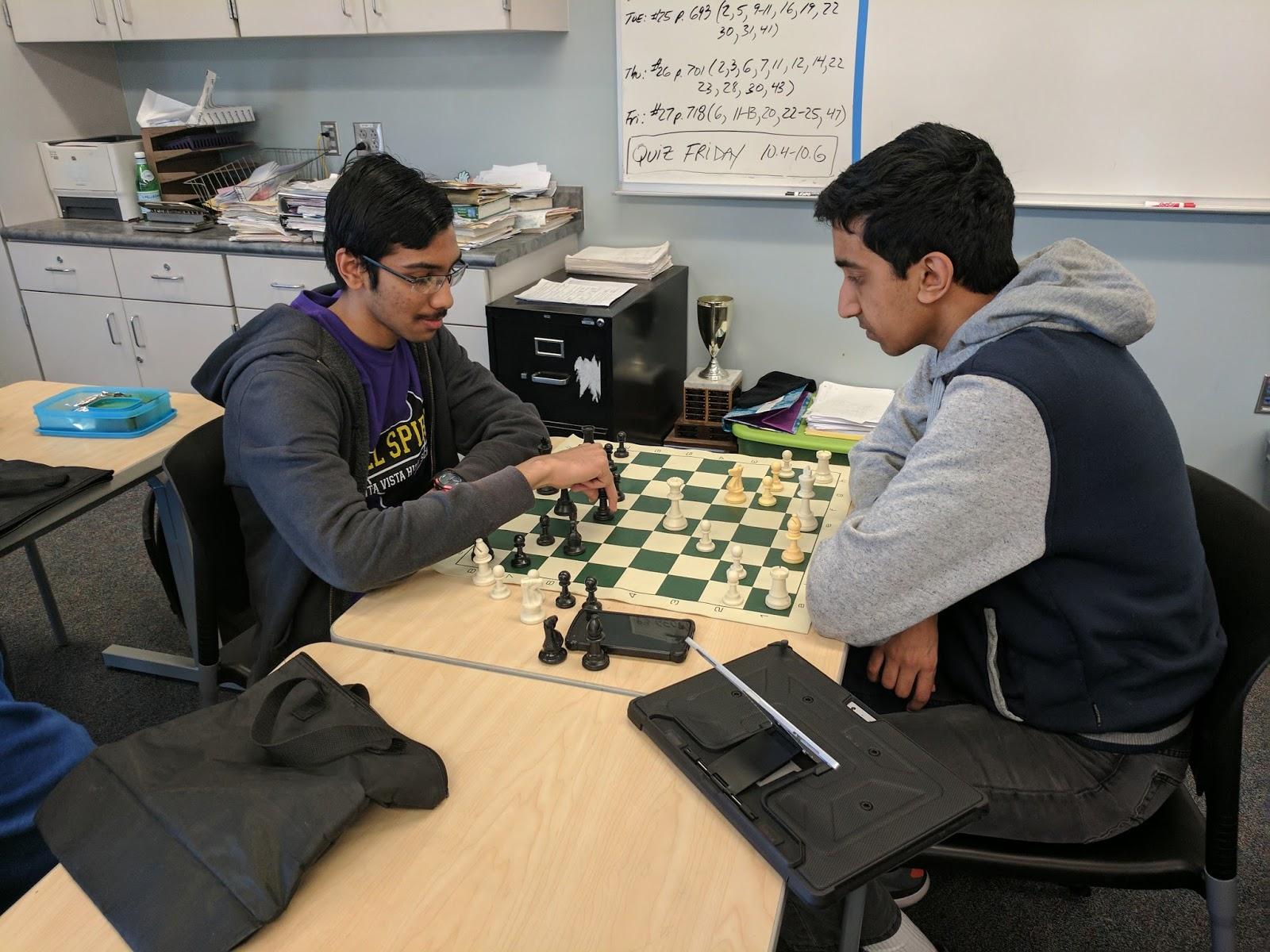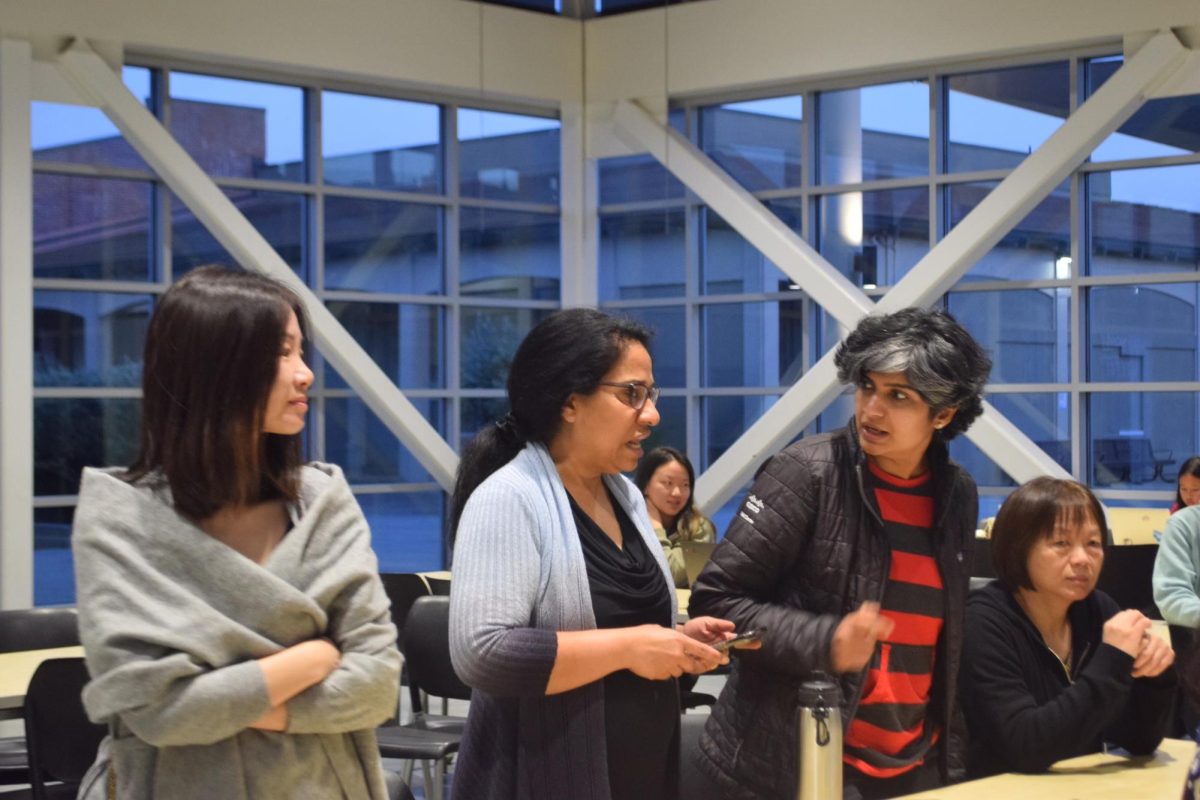
Lights shine down from the ceiling above the Presidential ballroom in the Gaylord Opryland Resort & Convention Center in Nashville, Tenn.. Rows and rows of tables are set up all along the floor, and the hum of thousands of kids chatting fills the room. But, over it all, comes a sharp clicking sound — the simultaneous sound of many chess pieces moving at once. Welcome to SuperNationals VI, a tournament hosted by the U.S. Chess Federation every four years that invites players and teams ranging from kindergarten age to senior year of high school to compete with each other.
President of the Chess club senior Kesav Viswanadha has been playing chess since he was five years old, currently holding a ranking of 2400 out of the highest ever known score of 2882. He is satisfied with the club’s performance in the previous years, and is excited for this year’s matchup in May.
“We were national champions in 2015, and we ranked pretty highly both other years, 2014 and 2016. We’re hoping to win again this year,” Viswanadha said. “Harker [HS] won nationals last year and they have a really strong team, too. I would say they’re our main competition at Nationals.”
The Nationals schedule can be rigorous for chess players. Besides the strategic mindset needed to compete at such a high level, the sheer physical endurance that is required is daunting.
“I’d say it’s just as intense as any athletic sport,” Viswanadha said. “The stamina that you need to last four, five hours in games [is pretty huge]. Imagine taking the SAT two or three times a day, for three days.”
Sophomore Kireeti Devarakonda can empathize with the endurance required for chess because of his past experiences with chess tournaments. The main thing he is excited for in this year’s SuperNationals is the challenge.
“For Nationals, only people who are really serious players will go,” Devarakonda said. “I find it exciting that I get to play people who are extremely dedicated to chess.”
Besides being a sport that challenges him, chess has also taught Devarakonda many valuable life lessons.
“Chess has really forced me to slow down,” Devarakonda said. “Before I played chess, I was pretty fast at math. My teacher would give me a hundred problems and I could do them in five minutes. But then, 10 to 20 percent of them had mistakes . . . after I played chess, the experience of playing too fast there backfired. I was making blunders, moving too fast, I wasn’t paying enough attention. So the experience kind of conditioned me to slow down and to take one more look.”
Sophomore Samyak Karnavat is motivated to play chess in order to take advantage of opportunities other members of his family did not have when they were growing up.
“The first time I started playing chess was around five years ago,” Karnavat said. “My dad was interested in chess, though he never really played it. When my dad was young he never got to play chess, so he was fascinated by the game. He introduced my brother and me to chess, and we had some coaching to play.”
Even though Karnavat does not plan to go to SuperNationals this year, he does plan to go to the Nationals tournament next year. The main reason he cites for not going to this year’s is a lack of time to practice.
“This year, I’ve been a bit busy, and my chess preparations are not going that well because I’ve also started doing other things in chess like monitoring at tournaments and chess camps where we teach young kids,” Karnavat said. “As for the tournaments coming up [next year], I’m not that nervous. Right now, it’s all fun.”







